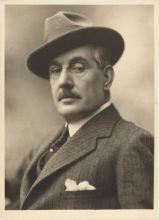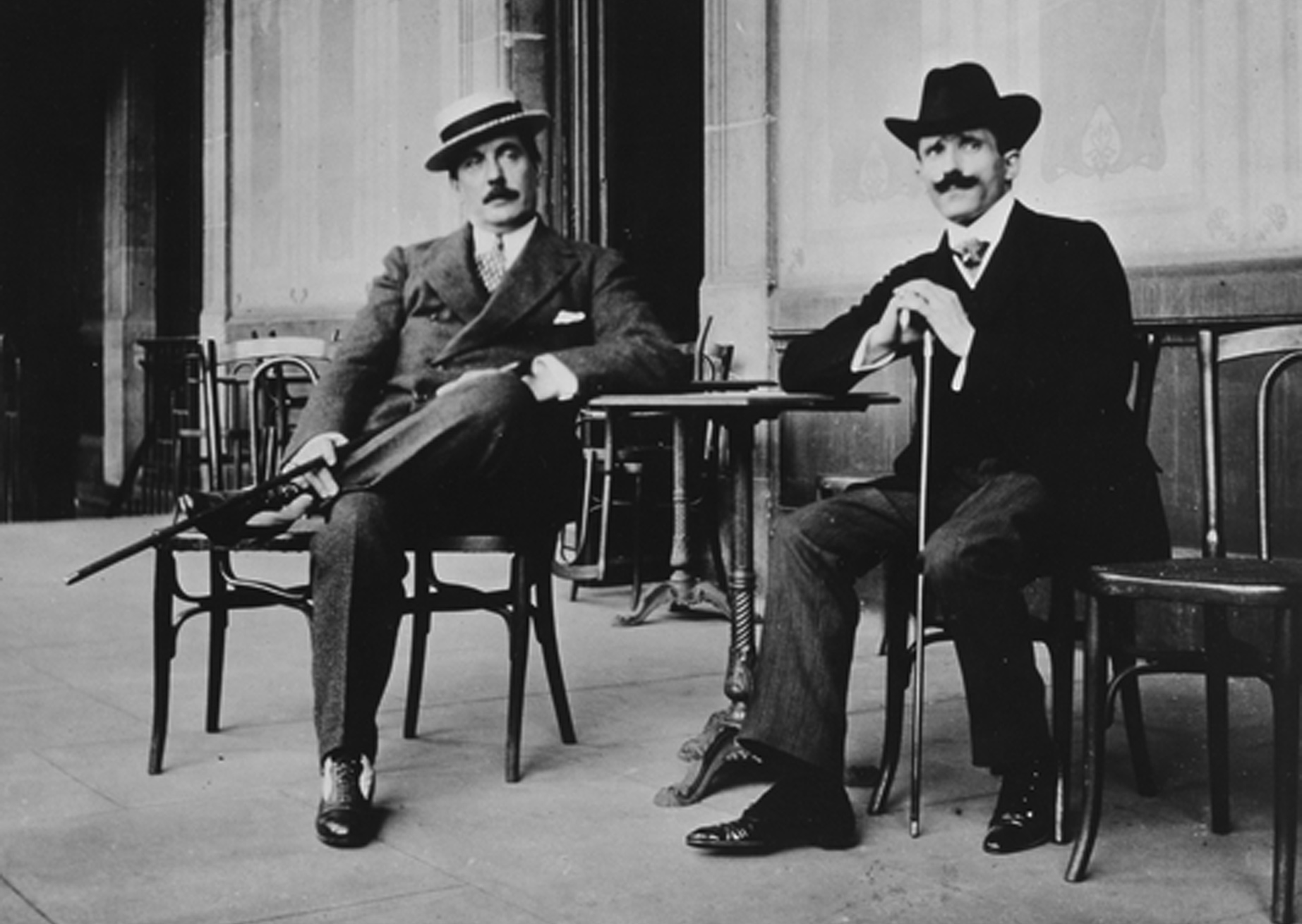
Giacomo Puccini
Italian composer Giacomo Puccini (1858–1924) is often regarded as the most important opera composer after Verdi. His work is frequently associated with verismo, a movement within opera that focuses on the lives of ordinary people, their emotions and struggles – often set in a tragic and romantic context.
One of the best-known examples is La bohème, an opera about four young artists living in poverty in Paris. The music is romantic and often melancholic, striking an emotional chord with many listeners.
With Madama Butterfly, Puccini ventured into a completely different world. He incorporated oriental influences in his music, such as pentatonic scales, Japanese gongs and other Eastern sounds. These cultural elements gave his work a distinctive character.
Musical heritage: the Puccini dynasty
Puccini was born in Lucca, into a family with a long musical tradition. His father, grandfather and great-grandfather had all served as music directors at the Lucca Cathedral. After his father died when Puccini was just five years old, this tradition came to an end.
He first studied at the Instituto Musicale Pacini in Lucca, where he graduated in 1880 with his Messa di Gloria. He then continued his studies at the conservatory in Milan, where he composed works such as the two-part Preludio Sinfonico and Capriccio Sinfonico.
Breakthrough in opera
After completing his studies, Puccini focused entirely on opera. His debut, Le Villi (1883), did not win any awards, but it caught the attention of influential publisher Ricordi. Verdi also praised his talent, although he advised Puccini to use less symphonic writing in his operas.
Puccini’s second opera, Edgar (1889), was less successful. But with Manon Lescaut (1893), he achieved his breakthrough. The opera was a major success and marked the start of a flourishing career – and financial independence. Puccini built a villa in Torre del Lago, where he would live until his death.
Personal life
Puccini had a complicated relationship with his beloved Elvira Gemignani, whom he could only marry in 1904 after the death of her first husband. Together, they had a son, Antonio. Despite their marriage, Puccini had several affairs with singers.
A dramatic turning point came in 1909, when their maid Doria Manfredi was falsely accused of having an affair with Puccini. She took her own life, and an autopsy later revealed she had been innocent. This tragedy inspired the character of Líu in Turandot.

From fiasco to triumph: Madama Butterfly
Puccini began working on Madama Butterfly in 1900, after seeing a play based on the story in London. A car accident in 1903 delayed the composition process, leaving little time for rehearsals. The premiere in Milan in 1904 was poorly received.
After revising the opera, it was performed a few months later in Brescia – this time with great success. Madama Butterfly soon became one of Puccini’s most beloved operas worldwide.
Final years and politics
During the First World War, Puccini composed the triptych Il trittico, consisting of three one-act operas: Il tabarro, Suor Angelica and Gianni Schicchi. The latter remains especially popular to this day. The triptych premiered in 1918 at The Metropolitan Opera in New York.
In 1923, Puccini met dictator Benito Mussolini, hoping to gain support for a new theatre in Viareggio. Although he was named honorary member of the Fascist Party, there is no evidence of any real political involvement. Shortly before his death, he was appointed senatore a vita (senator for life).
Illness, death and legacy
From late 1923 onwards, Puccini suffered from throat problems. A heavy smoker, he was diagnosed with throat cancer. During radiation treatment in Brussels, he died in 1924 from a heart attack caused by internal bleeding. He was first buried in Milan, and later reinterred in the chapel of his villa in Torre del Lago.
His final opera, Turandot, remained unfinished. The final scenes were later completed by Franco Alfano, in consultation with Toscanini. Puccini’s villa is still owned by his family and now serves as a museum, where visitors can explore manuscripts, letters and the family tomb.
Tosca in 2025
In autumn 2025, Puccini’s masterpiece Tosca will be performed at Dutch National Opera & Ballet. From 3 to 25 September 2025, experience this gripping opera live in Amsterdam.